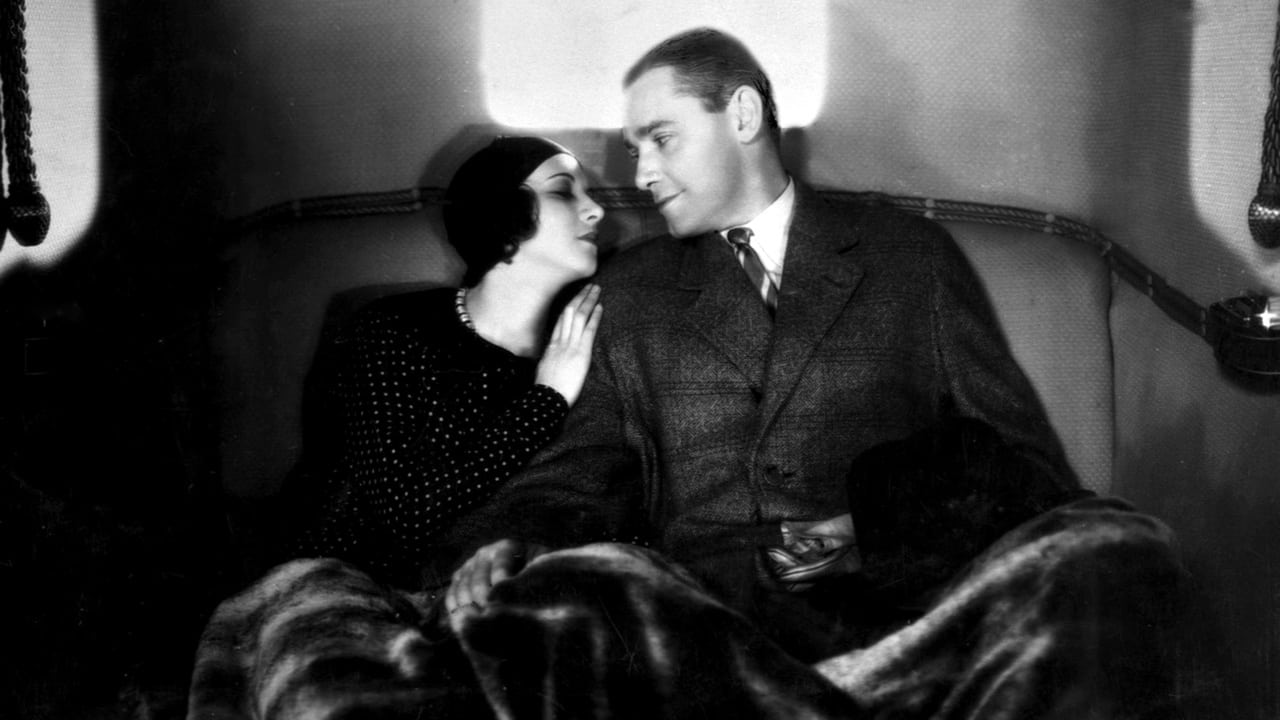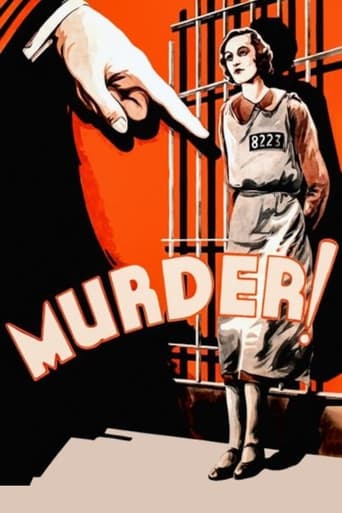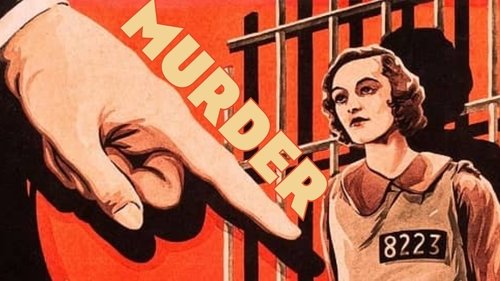


Clever and entertaining enough to recommend even to members of the 1%
... View MoreIt’s fine. It's literally the definition of a fine movie. You’ve seen it before, you know every beat and outcome before the characters even do. Only question is how much escapism you’re looking for.
... View MoreClose shines in drama with strong language, adult themes.
... View MoreThis movie feels like it was made purely to piss off people who want good shows
... View More'Murder!' is much thrilling and better movie than its current (2018) score might imply, although bit meandering and uneven in pacing the story is still interesting and well though out. The opening scene where camera movies along the street and people open their windows to the noise is pure example of genius director at work. The courtroom scene and the one after that where the jury argues over the verdict is wonderfully suspenseful. With the jury scene Hitchcock also plays wonderful trick how people with different opinions and understandings are sometimes simply bullied to agree with the great majority without even listening their arguments. The middle part of the film where the main character tries to solve the murder, although offering some humorous moments might seem bit dull to some, but shortly before the great reveal, the film picks up the pace and thrills when the main character starts his cat and mouse game with the supposed killer. And then the thrilling ending.Definitely worthwhile early Hitchcock picture.
... View MoreA mystery movie adapted from the novel and play titled ¨Enter Sir John¨by Clemence Dane and Helen Simpson . It deals with a girl (Norah Baring) silently accepts her prosecution for killing , while the jury is deliberating , there is a lone juror (Herbert Marshall) who believes in her innocence begins an investigation his own and winds up discovering weird happenings .This fine early effort by Hitch has several novelties , as the movie transcends the limitation of its mystery plot by dealing with thought-provoking issues and focusing on the theatrical meditations of reality . An early talkie for Great Britain in which director Hitch features visualization of some typical Hitchcockian themes , being perhaps the most provocative of all early British films , adding the first gay stereotype in popular cinema and the first movie where a person's thoughts are presented by a voice-in-off . The story follows mysteriously the investigation of a murder and the protagonist attempts to keep the condemned girl from being executed to death penalty by hanging . One of the first and best Alfred film to explore the ideas and themes that would become his trademarks , including climatic and memorable scenes . Herbert Marshall gives a good interpretation as the jurist believing in a young woman's innocence and starts organizing the pieces of the crime in order to save her . Look closely for the Master in a rapid cameo about an hour into the film walking past the house where the murder was committed and Una O'Connor , John Ford's regular ; besides , brief acting by Miles Mander .The film belongs to Hitch's first British period when he directed silent films such as ¨The lodger¨ (1926) , ¨The ring¨(1927) , ¨Easy virtue¨ (1927) , ¨The Manxman¨(29) ; being ¨Blackmail¨(29) made as a silent , this was reworked to become a talkie . Following sound movies and early talkies as ¨June and the Paycock¨(30) , ¨Skin Game¨(31) , ¨Rich and strange¨(32) , ¨Number 17¨(32) , ¨The man who knew too much¨(34) , ¨The 39 steps¨ (35) , ¨The secret agent¨(36) , ¨Sabotage¨(36) , ¨The lady vanishes¨(38) , ¨Jamaica Inn¨ (39) until he is hired by David O'Selznick to shoot ¨Rebecca¨(40) in the US .
... View MoreOn a noisy evening, beautiful British stage player Norah Baring (as Diana Baring) is found with the bludgeoned body of a rival actress and a bloody fireplace poker. After a short investigation, Ms. Baring is charged with murdering the other woman. However, the accused can't recall a thing she did, and nearly admits guilt on the witness stand. Actor, playwright, producer and juror Herbert Marshall (as John Menier) thinks Baring may not have committed the crime. Calling the defendant "pretty," Mr. Marshall sets out to prove the attractive young woman did not commit "Murder!" Obviously very well-versed, Marshall mentions Agatha Christie's "The Mousetrap" and quotes Shakespeare. "The play's the thing" (from "Hamlet"), he believes will help identify the real killer. Marshall decides to write a story about the murderer and engage suspects in the role...This early "talkie" is most notable for being directed by Alfred Hitchcock, eventually acclaimed as one of the 20th century's greatest filmmakers. After a nice (tracking) opening, Mr. Hitchcock gets a little cluttered and almost loses the fact that there is a murder victim somewhere near the bottom of the screen. However, this being Hitchcock, we do get a good look at tea and women's underwear. There is more experimentation here than in some of the master's other early films – which should interest the academic viewer. It's fun to see him developing skills. In one of the supporting roles, Esme Percy (as Handel Fane) stands out. He plays an actor who assumes both masculine and feminine roles into adulthood, due to a high-pitched voice. He's also seen on the flying trapeze in a circus act. Moreover, the character is apparently bisexual. That's versatility! ***** Murder! (7/31/30) Alfred Hitchcock ~ Herbert Marshall, Norah Baring, Esme Percy, Edward Chapman
... View More...at least for American audiences. First, between the primitive state of sound recording in 1930 and the heavy British accents here (not to mention a couple of scenes where the background music drowns out the speech), I found it difficult to catch some of the dialog...and, hence, some of the story line. Second, like many British films, I found the story to move along dreadfully slowly in some scenes.However, it is nice to see some early British Hitchcock, and to then realize how quickly film-making in general, and his film-making evolved shortly after that.I watched this film primarily because the primary star is Herbert Marshall, long a favorite of mine...though he has been somewhat forgotten to history. This was only his third film. And, it is Marshall that makes the film worth watching. What I mean by that is that the first section of the film -- where we learn about the murder -- is poorly and primitively done. It's not until the jury deliberation segment that the film becomes a bit sophisticated, and the first impressive acting we see is by Marshall at the end of the deliberation segment (his first spoken part in the film) and, a short time later as he is shaving. Now that's acting! Everything else to that point has just been people saying lines in rather immature depictions of minor characters...although even the female lead (Norah Baring) is a pretty poor actress with a horrid voice for films. And, unfortunately, the next segment, where Marshall has a chat and dinner with two people from the theatre group from which the accused murderess worked, the dialog is clumsy and awkward. This seems to happen throughout the film...a few pretty good scenes mixed in with some pretty bad scenes.I don't know much about 1920s England, but egads, the settings (whether houses or court rooms or prisons) seem downright primitive. And why are several of the women who clearly live in minimal standards wearing fur coats? There really is only one segment worth of Hitchcock -- the climax. You watch, knowing exactly what the character will do...although he doesn't do exactly what you think he will...but accomplishes the same thing. It's a suspense building scene, nonetheless, and the faces of the crowd are quite impressively done.So, what's the bottom line? If Alfred Hitchcock's eventual career had depended on this film, in my view none of us would have ever heard of Alfred Hitchcock. This isn't the first 1930 film I ever watched...but it's probably the worst. There are only two reasons to watch it -- to see what early Hitchcock was like, or because you admire Herbert Marshall. Otherwise, give it a wise berth.
... View More